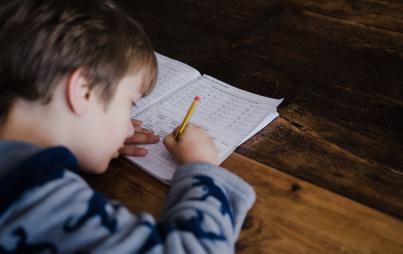
Some tips on what to do when dealing with a child phase that is not your fave.
So, it's likely you won't love every stage your child goes through… and that’s actually okay.
My son just entered the terrible two’s and we are already bracing ourselves for the change. We’ve been through this phase before (once for me, and twice for hubby) and we know it’s a doozey. That range from two- to four-years-old is far from my favorite phase.
This is one of those things that I truly wish I’d known before becoming a parent. And it seems that nobody really talks about this particular aspect of parenting. Maybe parents are reluctant to speak negatively about their children? If you admit to not liking a particular phase, does it mean you don’t like your child?
Not in my opinion. It seems perfectly logical that you’re not going to like EVERY phase your child goes through because each phase is drastically different from the next. And just like teachers choose a particular age they prefer to teach, I accept that I have favorite stages of childhood development as well.
In particular, I love the baby phase. That first year is amazing, filled with sweetness and bliss. Yes, I truly love the complete dependence of babyhood, particularly their limited movement and the inability to say “no.” Yet, I’ve spoken with other moms who could have completely skipped that phase altogether.
The early toddler phase (I’ll call it from age 1-2) is also pretty fun for me, although there are a couple of challenges once kids begin to run around and test physical limits. I am not particularly active, so the get up and go was exhausting. But I loved the opportunity to see them explore new activities and experiences.
And then… there’s the willful late stage toddler phase (cue scary music). I could literally hand my child off to someone else for this phase, to be returned when their logic has developed and their emotions are better regulated. The erratic emotional swings magnified by the inability to communicate makes me throw my hands up in despair. I have to reset my patience at least 15 times a day, and by the evening, my brain power is thoroughly depleted.
With my oldest at just past four years old, I can already see her emerging from this phase — and I am thrilled. I have had tons of experience with preschoolers, and I am so looking forward to spending this time with her, engaged in learning and stories and meaningful conversation.
Even my stepdaughter, at 13, is a complete joy. Sure, I get frustrated with little things here and there, but in general I feel fortunate to have a well-behaved teen. I’ve gotten more than my share of warnings about teenage behavior, so I’ll reserve my final determination on whether or not I like that phase until closer to the end. And with my own children as well, judging by their 2-year-old selves, things just might get interesting…
With that in mind, here are some strategies for what to do when you encounter a particularly rough patch:
1. Grin and bear it.
It really is okay to plaster a smile on your face because you know each phase will eventually end (although some are quite long), and hopefully the next phase will be one you can enjoy.
2. Take extra breaks.
If you have a partner, try exchanging child coverage in order to have time alone to recharge so you are fully refreshed to reapply your patience and stamina.
3. Accept your reactions.
It is okay to feel this way, but it is your job to parent on, trudging through the hard times and employing healthy strategies and boundaries with your child.
4. Hit the reset button.
It’s never too late to start your day over. Don’t get bogged down by a bad start or a day that’s spiraling out of control. Hit the reset button, compose yourself, and try again, even if it’s nine o’clock at night.
5. Create a parenting mantra.
Ours is “It must be so hard.” It goes something like this: “It must be so hard for you that you can’t put your shoes on by yourself.” This helps to see the world through your child’s viewpoint, creating a more empathetic response as opposed to a frustrated one.
6. Find the bright side.
Even if the joyful moments are few and far between, don’t wish the whole season away without noticing some good points. Hold onto them with all your heart in order to give you hope for the future and memories for the past.
***
I don’t know what the future will bring with my children. I’m even open to the idea that I’ll like some phases with one child and other phases with the others. Each child moves through their development at a different pace, colored by their own unique personality. Removing the expectation that we must love every moment of parenting frees us up to flow through each stage with the perspective necessary to be the best parents we can be.







